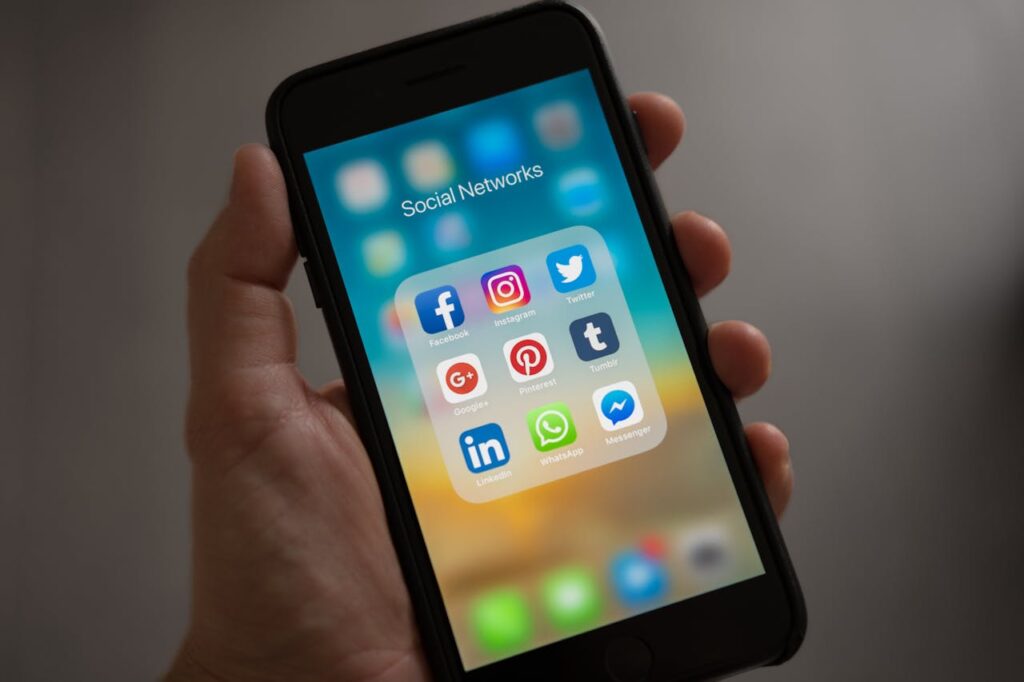New Study Claims Happy Couples Are Less Likely to Post Their Partner on Social Media

We are used to seeing love through a filter, where smiling couples appear in vacation snapshots, share quiet coffee mornings, and pose in matching outfits against a sunset backdrop. It can all look effortless, even enviable, but what if those perfect pictures tell only part of the story? What if the true state of a relationship has little to do with how often it appears online, and everything to do with what happens when the cameras are off?
When Love Goes Public: The Hidden Truth Behind Picture-Perfect Posts
We live in an age where love is often measured in likes. Scroll through Instagram or TikTok, and you’ll see couples smiling in sunsets, sipping coffee in matching mugs, and posting picture-perfect selfies week after week. But behind those polished snapshots, are they truly as happy as they seem?
A recent Shotkit survey of 2,000 couples aged 18 to 50 uncovered something surprising. Couples who posted three or more selfies together each week were 128% more likely to be unhappy compared to those who kept their relationship largely offline. Only 10% of these frequent posters described themselves as “very happy,” while nearly half (46%) of couples who rarely or never posted said the same.
The pattern isn’t just anecdotal as it’s supported by academic research. A series of studies by Carnegie Mellon University and the University of Kansas, as reported in Medical Channel Asia, found that sharing too much personal information with a large online audience can erode intimacy. When private moments are broadcast publicly, their emotional exclusivity fades, leaving partners feeling less valued. By contrast, couples who keep more interactions offline tend to report stronger bonds and greater satisfaction.
So, does this mean the happiest relationships are the ones we never see online? Or is there more to the story—something about how intimacy changes when love is put on display?
The Research Behind Posting and Happiness
The conversation about whether posting affects relationship satisfaction is backed by rigorous research, not just viral opinion. A study published in PLOS ONE, examined how self-disclosure such as sharing personal information affects romantic relationships in both offline and online contexts. They found a clear distinction: when couples share intimate thoughts and experiences in private, face-to-face settings, it strengthens emotional closeness. However, when those same details are shared with a large, mixed audience online, the sense of intimacy can weaken.

The researchers call this the effect of audience inclusivity—the broader the audience for a personal post, the less special that information feels to the partner. What might have been an intimate gesture can begin to feel performative when it’s broadcast to hundreds or thousands of followers.
Yet there’s nuance here. The study also found that posting with your partner—like sharing photos together or captions celebrating your bond—can actually reinforce connection and trust. That tells us it’s not about shunning all posting, but about choosing what, when, and how to share. Intentional, relationship-centered posts carry a sincerity that public broadcasts often lack.
Why Some Couples Post More: Validation, Insecurity, and Public Proof
Public posting isn’t always about vanity—it can be a strategy for reassurance. The Shotkit survey found that many frequent posters used social media to mark territory, signaling that their partner was committed and unavailable to others. This need for public confirmation often grows stronger when there are underlying doubts or past experiences that have shaken trust.
Cultural and generational factors also play a role. Younger couples, who have grown up with digital sharing as a default, may see online displays as an essential part of relationship expression. For some, not posting feels like withholding, even if the relationship is strong in private. In certain communities, visibility carries additional meaning—such as affirming identity, challenging stereotypes, or demonstrating stability in the face of social stigma.
@dr.justindarienzo Be bold & send this to your partner! #fyp #fypシ #drdarienzo #darienzopsychology #psychologist #clinicalpsychologist #forensic #forensicpsychologist #funfacts #tipsandtricks #happycouple #socialmedia #evolutionarypsychology #bold #confidence ♬ Epic Music(863502) – Draganov89
There is also the subtle influence of social proof. On platforms where attention signals value, couples may feel pressure to “keep up” with peers whose relationships are publicly celebrated. Over time, these patterns can normalize constant posting, even when the emotional return is small. In these cases, the drive to share comes less from genuine joy and more from a learned belief that a relationship isn’t fully real unless others can see it.
When Posting Helps, Not Hurts
Not all online sharing erodes intimacy. In some cases, posting can strengthen a relationship when it’s intentional, infrequent, and aligned with the couple’s shared values. When posts highlight shared milestones, such as anniversaries, joint achievements, or meaningful trips, they can reinforce a sense of unity and shared identity. These moments serve as digital keepsakes, reminding both partners of their journey together.

Posting can also act as a bridge for long-distance couples. In geographically separated relationships, public acknowledgments can help partners feel included in each other’s daily lives and signal ongoing commitment to friends and family. Here, the audience serves less as an approval panel and more as a network of support.
In some cultural contexts, visibility itself is an act of solidarity. For couples facing social stigma, whether due to ethnicity, religion, or sexual orientation, publicly celebrating their relationship can be a form of empowerment. It can turn a personal declaration into a broader statement of belonging, offering encouragement to others in similar circumstances.
The difference lies in intention. Posts that reflect genuine appreciation, celebrate milestones, or express solidarity tend to deepen connection. Posts driven by competition, image management, or insecurity often do the opposite. In other words, it’s not the presence of social media in a relationship that matters most, but the purpose it serves.
The Hidden Costs of Oversharing
When every moment is posted, the pressure isn’t just on your feed—it settles in your heart. Sharing without pause can blur the line between connection and performance, turning private moments into little productions.
Research reminds us there’s a tension between wanting to be open and maintaining privacy. A review of privacy issues in romantic relationships points out that while social media brings us closer, it also exposes us to judgment, misunderstandings, and even emotional harm when boundaries aren’t clear.
We’ve also seen a new kind of intimacy creep into our phones: location tracking. It may start as practicality or care, but it can quickly edge into discomfort. A recent report from The Guardian explores how location-sharing apps such as Find My and Life360 often begin as a convenience and become a tool for surveillance. Experts warn that when it stops being consensual and starts being expected, that’s where trust begins to unravel. Joanna Harrison, a couple therapist and the author of Five Arguments All Couples (Need to) Have, believes location sharing can be a threat, stating “It would be a shame if these apps took away an opportunity to share the details of each other’s independent lives because they already knew them.” She also added, “There’s also a part of me that feels that a bit of romance is lost when you know, to the second, where someone is. What about the satisfying feeling of longing to be met when you know someone is arriving, but you don’t quite know when?”
And it’s not just watchfulness; sometimes it’s erasure. The Pew Research Center in 2014 found that 25% of people in relationships felt distracted by their partner’s phone. Some arguments weren’t about money or timing; they were about “Why are you looking at your screen when we’re together?”. Social media, when unchecked, can quietly dismantle presence. Moments meant to be shared between two get interrupted by notifications, comparisons, and FOMO.
So if your experience of togetherness starts to feel like pre-show backstage, it might be time to pause. Because when relationships become about performativity, the real connection quietly slips away.
Tips for Balancing Love and Social Media
Social media is not the enemy of love. But without thought, it can start to shape how you connect, sometimes in ways you never intended. These tips are not about strict rules—they are about small, intentional choices that protect the connection you have while still letting you share it with the world.
1. Protect What Feels Sacred
Not every meaningful moment needs to be public. Some experiences grow deeper when they live only between the people who shared them.
2. Define Your Digital Comfort Zone
Agree on what feels natural to share and what should remain private. Clear boundaries remove the guesswork and help both partners feel respected.
3. Post With Intention
Choose posts that add value to your relationship rather than distract from it. Ask whether the act of sharing strengthens your bond or simply adds to the noise.
4. Limit the Audience
The fewer people who see your most personal moments, the more special those moments remain. Use selective sharing tools or keep certain content offline altogether.
5. Let Presence Come First
Before you reach for the phone, give the moment your full attention. Experiences lived fully are remembered more vividly than those rushed for a photo.
The Bigger Picture: Choosing Depth Over Display
The pattern is hard to ignore. While sharing parts of your relationship online can be a way to connect with friends and mark special moments, too much of it can quietly wear down the closeness you have in real life. Studies show that when private moments are broadcast to wide audiences, their meaning can shift. What was once an act of connection becomes a performance.

It is less about counting how many times you post and more about the purpose behind it. Thoughtful, relationship-centered posts can affirm your bond. But when the focus turns inward on how you look, how you are perceived, or how others respond, the connection can weaken.
Couples who thrive tend to protect what matters most. They know that the truest signs of happiness are often invisible to the outside world. In a culture that rewards constant visibility, choosing to leave certain moments unshared is not a loss. It is an act of care. Sometimes, the strongest love is the one that does not need to be proven, only lived.
Loading...

